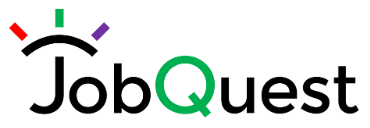The Power of Keywords in Resume Building

The rise of Applicant Tracking Systems (ATS) introduces a new battleground in the job search. These robots scan resumes, ruthlessly rejecting 75% of applicants based on keyword algorithms. Even surviving this initial cut leaves you facing a mere 6-second window to impress a recruiter. To conquer this challenge, master the language of ATS: relevant keywords. Weave them strategically into your resume, building a bridge between your skills and the job description. Become an ATS whisperer, and watch your resume rise above the bots, sailing towards that coveted interview.
The Growing Challenge
The educational landscape in the U.S. has witnessed a notable surge, with a 30.2% increase in college graduates with an associate degree or higher from 2000 to 2022. Over the same period, the number of 4-year college graduates aged 25 and above soared by 40 million or 90% according to educationdata.org As the job market becomes increasingly competitive, standing out necessitates a meticulously crafted resume, given that companies now rely on Applicant Tracking Systems (ATS) to identify the right candidates for specific roles.
The only way to do great work is to love what you do. If you haven't found it yet, keep looking. Don't settle.
Steve Jobs
Decoding Keywords
In the digital era, the term ‘keywords’ has transcended its origins in search engines to become an integral facet of the recruitment process. Keywords in resumes encompass specific words or phrases directly linked to job requirements, encompassing hard and soft skills, competencies, experience, education, and certifications.
Employers and recruiters leverage these keywords as navigational tools amid the cascade of applications, often aided by Applicant Tracking Systems. These systems autonomously scan resumes for relevance. In essence, your resume must fluently converse in the language understood by these systems – the language of keywords.

Identifying Relevant Keywords
To arm your resume with the most effective keywords, you need to extract cues from job descriptions and industry trends. This involves analyzing job postings that interest you and noting the recurring terms that define the role’s requirements.
JobQuest provides comprehensive assistance in optimizing your resume for success. First, it carefully identifies keywords within the job description then conducts a thorough job X-ray of your current resume to pinpoint any crucial elements that may be missing.
Strategic Placement of Keywords
Once you have your collection of keywords, it’s time to strategically place them within your resume. Leveraging its advanced AI resume building feature, JobQuest aligns your resume with industry or job-specific terminology, ensuring that it resonates effectively with both Applicant Tracking Systems (ATS) and recruiters. This tailored approach enhances the chances of your resume standing out in the competitive job market, increasing the likelihood of being selected by potential employers.
- Create the table lines here
- Organise everything early thoroughly
- Create the table lines here
- Create the table lines here
Tailoring Keywords for Different Job Applications
No two job applications should be met with the same generic resume. Customizing your resume for each application boosts your chances of standing out. To tailor your resume, you’ll need to revise your keywords according to the job description at hand. JobQuest not only tells you the job score and gap analysis of each of your resumes but also lets you manage all your resumes in one place saving your time and effort.
Measuring the Impact of Keywords
The value of a resume is measured by its success rate in generating interviews. Analyze your resume’s performance by tracking its impact with metrics using JobQuest’s job score feature. This will help you understand which keywords resonate more with recruiters and which may require revision. JobQuest’s AI-driven insights can point you toward more effective keyword integrations and optimization opportunities you might not have considered.
Conclusion
As you step into a competitive job market, remember that your resume is more than history. It must speak the right language—through powerful keywords—to proclaim your suitability for the position you pursue. Through JobQuest, optimize your resume, stand out in the digital crowd, and get ready for the opportunities that lie ahead.
